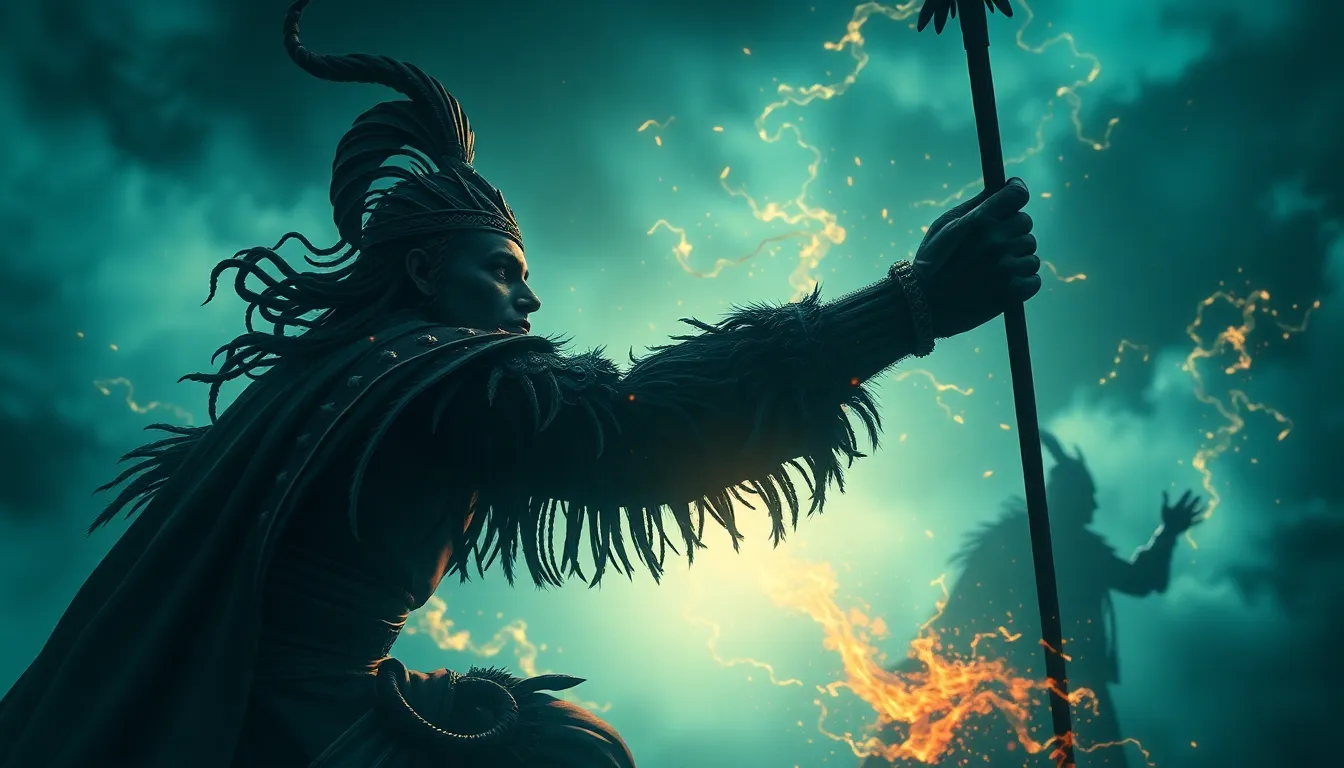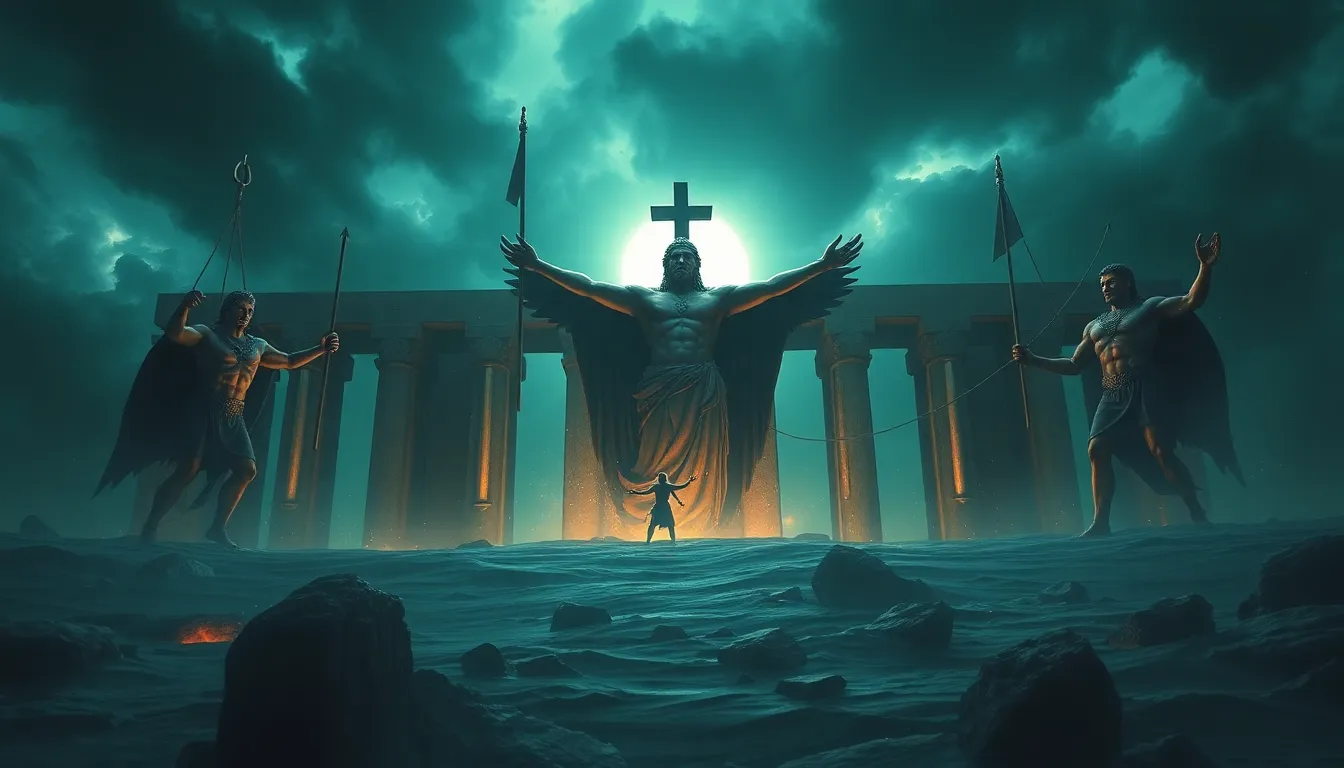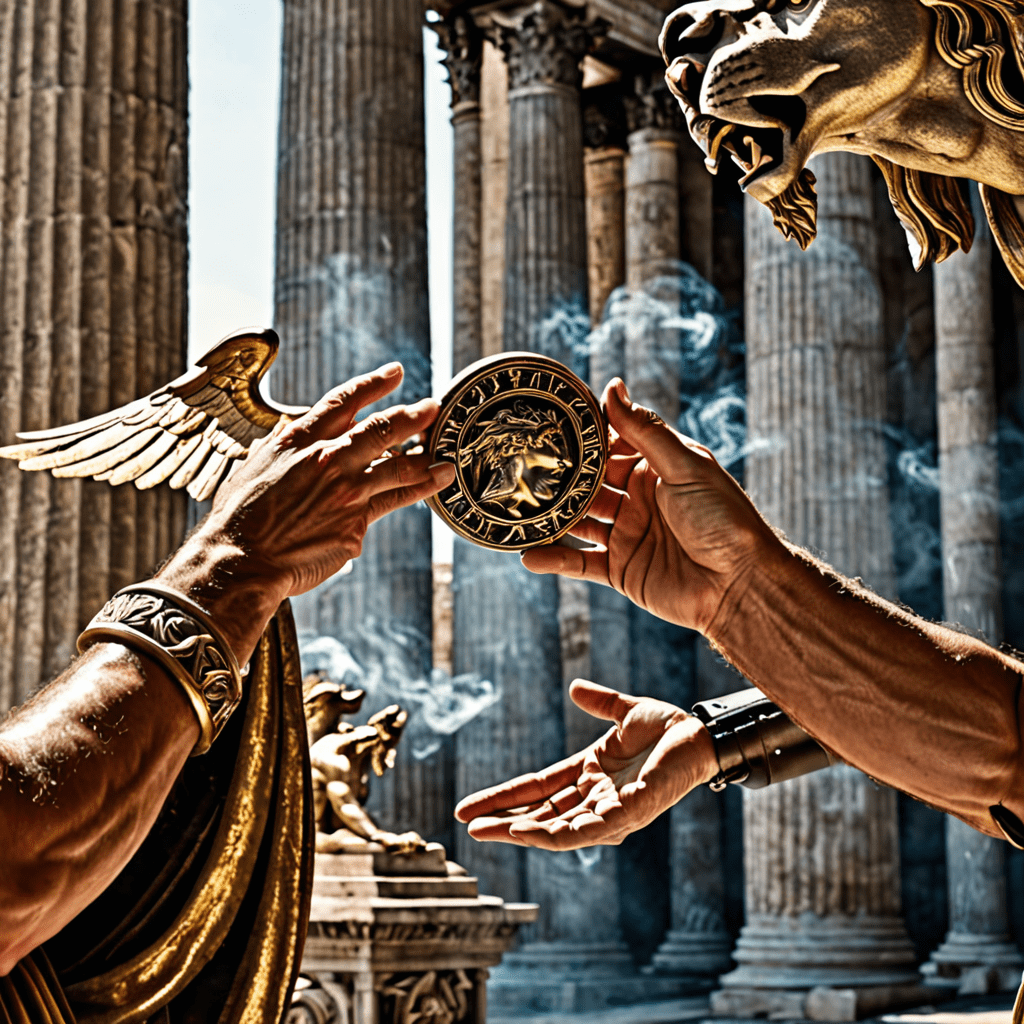The Transformative Power of Cultural Hero Myths in Society
I. Introduction
Cultural hero myths are narratives that celebrate individuals who embody the values, struggles, and aspirations of a society. These myths often articulate a community’s ideals and serve as models for behavior, inspiring generations to strive for greatness.
Across various cultures, hero myths have played a significant role in shaping societal norms and individual identities. They provide frameworks through which people understand their place in the world and the challenges they face. This article will explore the transformative power of these myths, examining their historical context, psychological impact, social cohesion, and their role as catalysts for change.
II. Historical Context of Hero Myths
Hero myths have existed since the dawn of civilization, with origins rooted in ancient cultures. Myths from Mesopotamia, Greece, India, and Africa reveal a shared human fascination with figures who overcome extraordinary challenges.
- Ancient Civilizations: Myths such as Gilgamesh from Mesopotamia, Achilles from Greek mythology, and Rama from Indian epics illustrate the heroic quests that defined their cultures.
- Modern Hero Myths: Contemporary heroes, like Martin Luther King Jr. and Malala Yousafzai, reflect modern values such as justice and equality, showcasing the evolution of hero archetypes.
The evolution of hero archetypes demonstrates how societies adapt their narratives to reflect changing values and challenges. As cultures evolve, so too do their heroes, encompassing a broader range of experiences and backgrounds.
III. Psychological Impact of Hero Myths
Hero myths significantly contribute to individual identity formation. They provide role models, instilling a sense of purpose and direction in people’s lives.
- Carl Jung’s Archetypes: Jung identified the hero as one of the key archetypes in his theory, suggesting that these figures represent the struggle for self-realization.
- Coping Mechanisms: Myths serve as tools for individuals facing adversity, offering narratives that help them process trauma and inspire resilience.
By identifying with heroic figures, individuals can navigate their own challenges, drawing strength and inspiration from the stories of those who came before them.
IV. Social Cohesion and Community Building
Shared myths foster a sense of belonging and community, creating bonds among individuals. Hero myths can unify societies around common ideals and aspirations.
- Case Studies: The story of Robin Hood has inspired communities to rally against injustice, while the myth of the American Dream continues to motivate individuals towards collective progress.
- Cultural Transmission: Myths act as vessels for cultural values, passing down wisdom from generation to generation and ensuring the preservation of cultural identity.
Through these shared narratives, communities can navigate social challenges together, reinforcing solidarity and mutual support.
V. Hero Myths as Catalysts for Social Change
Hero myths often serve as powerful catalysts for social change, inspiring movements that challenge the status quo.
- Civil Rights Movement: Figures like Rosa Parks and Nelson Mandela became symbols of resistance, motivating collective action for justice and equality.
- Narrative Power: The stories of these heroes can galvanize movements, as they resonate deeply with the collective consciousness and encourage individuals to take action.
Contemporary heroes, such as climate activists like Greta Thunberg, continue to inspire societal shifts, illustrating the ongoing relevance of hero narratives in driving change.
VI. The Role of Media in Shaping Hero Myths
The evolution of hero myths is closely tied to advancements in media, from literature to film and now digital platforms.
- Literature and Film: Classic hero tales, such as those found in Homer’s epics, have been adapted into modern films, reinforcing their relevance.
- Digital Media: Social media platforms allow for rapid dissemination of hero narratives, enabling new heroes to emerge and connect with global audiences.
Popular modern heroes, such as superheroes in comic books and films, reflect contemporary societal values and challenges, demonstrating the adaptability of hero myths across different mediums.
VII. Cross-Cultural Perspectives on Hero Myths
Hero myths are not confined to a single culture; they appear in various forms across the globe.
- Western vs. Eastern Myths: While Western narratives often focus on individualism, Eastern myths may emphasize harmony and community.
- Universal Themes: Common themes such as sacrifice, bravery, and the quest for justice resonate across cultures, highlighting shared human experiences.
Respecting and understanding diverse cultural narratives enriches our appreciation of hero myths and their significance in various societies.
VIII. The Dark Side of Hero Myths
Despite their positive attributes, hero myths also have a dark side that warrants critical examination.
- Idolization: The idolization of heroes can lead to unrealistic expectations for individuals, creating pressure to live up to these ideals.
- Fallen Heroes: Case studies of fallen heroes, such as political leaders who have betrayed public trust, illustrate the consequences of myth-making.
- Manipulation: Hero myths can be co-opted for propaganda, distorting narratives to serve specific agendas.
Recognizing these pitfalls is essential to engage with hero narratives critically, separating genuine inspiration from manipulation.
IX. The Future of Hero Myths in a Globalized World
Globalization is reshaping the landscape of hero myths, influencing their evolution and dissemination.
- Global Impact: Global interconnectedness allows for the sharing of hero narratives across cultures, creating hybrid heroes that embody diverse values.
- Technology’s Role: Emerging technologies, such as virtual reality and social media, are creating new platforms for hero narratives, allowing for more interactive and engaging experiences.
As we move forward, hero myths will continue to adapt, reflecting the complexities of a rapidly changing world.
X. Conclusion
The transformative power of cultural hero myths cannot be overstated. They shape identities, foster community, inspire social change, and reflect our deepest values. As we engage with these narratives, it is crucial to recognize their potential for both inspiration and manipulation.
By critically engaging with hero myths, we can harness their power to promote positive change and cultivate a deeper understanding of the human experience. In a world that often feels fragmented, the stories of heroes remind us of our shared aspirations and the potential for greatness within us all.




